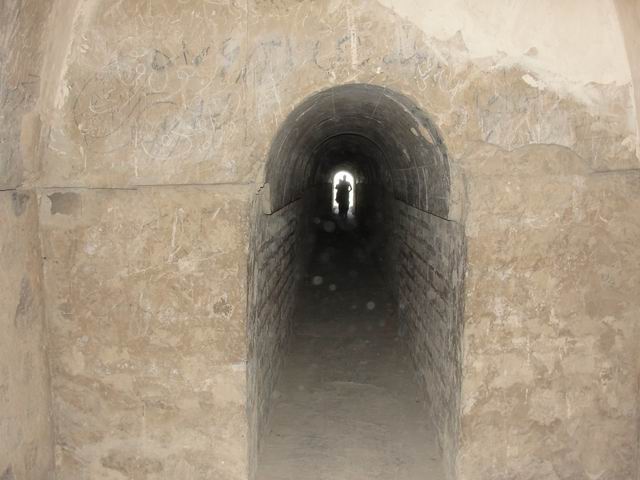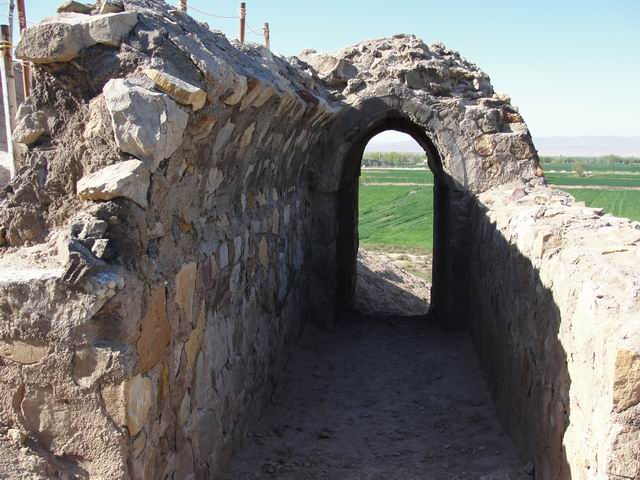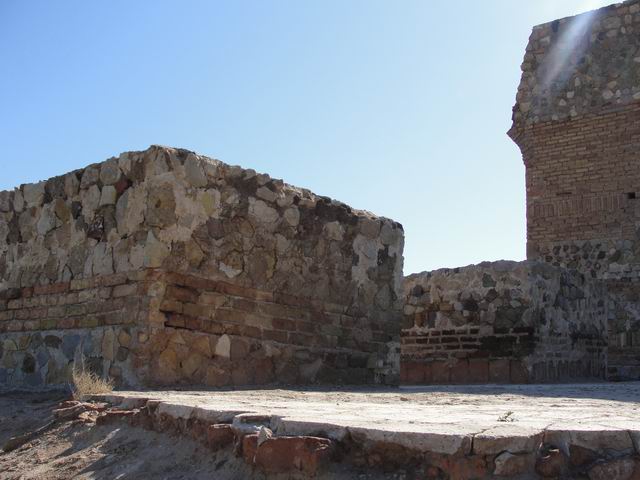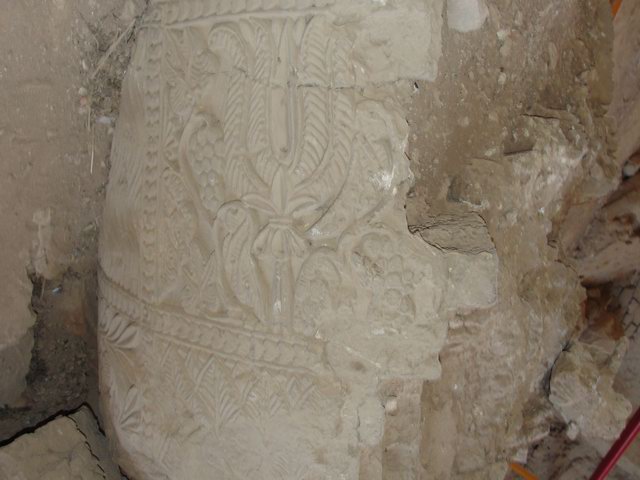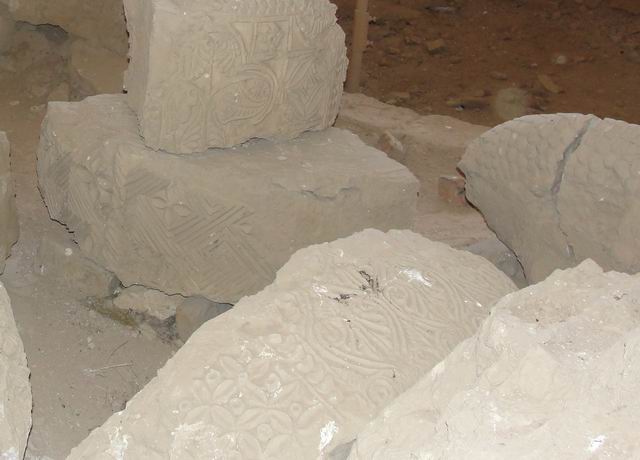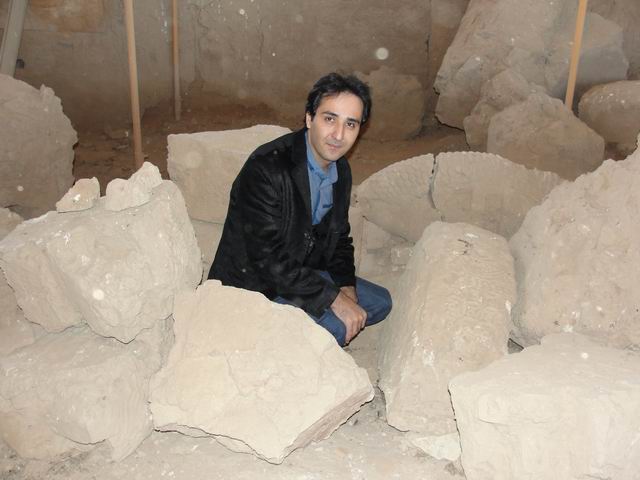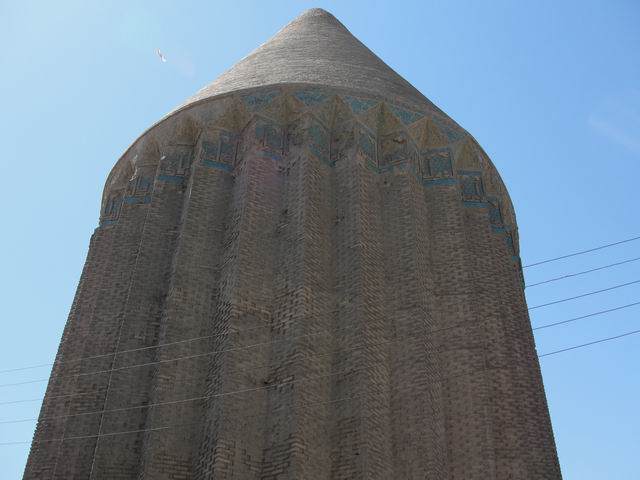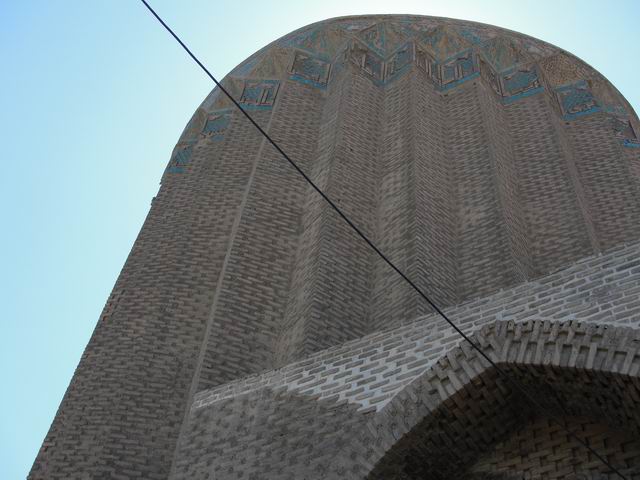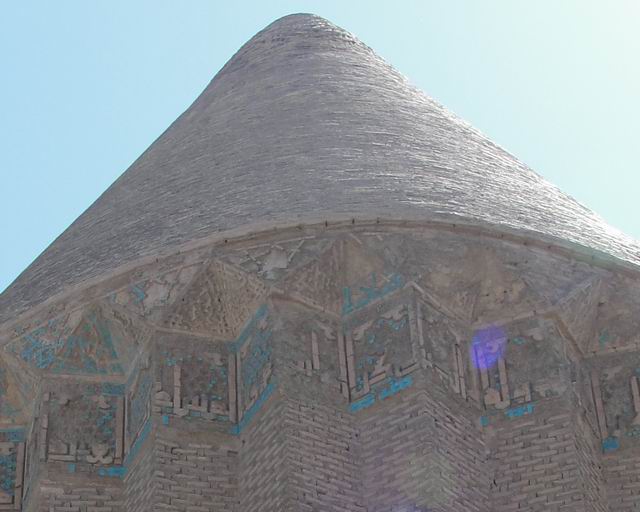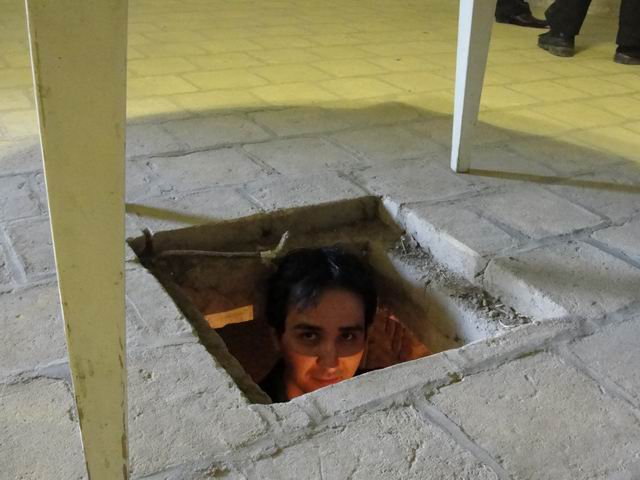My one day trip to Varena (Varamin)
Printed From: History Community ~ All Empires
Category: General History
Forum Name: Historical Pictures Gallery
Forum Discription: Post and discuss images of historical places, arts and maps...
URL: http://www.allempires.com/forum/forum_posts.asp?TID=28276
Printed Date: 23-Apr-2024 at 10:59
Software Version: Web Wiz Forums 9.56a - http://www.webwizforums.com
Topic: My one day trip to Varena (Varamin)
Posted By: Cyrus Shahmiri
Subject: My one day trip to Varena (Varamin)
Date Posted: 01-Apr-2010 at 12:21
|
Varamin is about 40 kilometres south of Tehran, as you probably know, the oldest part of Tehran is the southern part where the city of Rey is located, but this city of Rey which has already been absorbed into Tehran, is the Islamic city of Rey or Rayy, about 1,000 years ago it was the capital of Buyid and Great Seljuq empires, some buildings from this period are still there, like Mausoleum of Toghrïl Beg, founder of Great Seljuq empire. But the ancient city of Rey which has been mentioned as Rages in the Book of Tobit, then as Raga in the Behistun inscription of Darius the Great, and then named as Europos by Greeks and Arsacia by Parthians and finally again as Rayy by Sassanids, was located some kilometres south of modern Rey, the first place that I visited on the road to Varamin, was 2000-year-old fire temple of ancient Rey. About this temple: http://www.presstv.ir/detail.aspx?id=49647§ionid=351020105 - http://www.presstv.ir/detail.aspx?id=49647§ionid=351020105
There were some interesting things inside the ruined temple, like some fish statues, these are my pics in Rey fire temple:
------------- 
|
Replies:
Posted By: Cyrus Shahmiri
Date Posted: 01-Apr-2010 at 12:46
|
The modern city of Varamin seems to be built by Mongols in the 13th century, most of historical buildings in this city belong to this period, one of these buildings is Mausoleum or Tomb Tower of Aladdin: http://www.archnet.org/library/sites/one-site.jsp?site_id=2409 - http://www.archnet.org/library/sites/one-site.jsp?site_id=2409
Some pics:
------------- 
|
Posted By: Cyrus Shahmiri
Date Posted: 01-Apr-2010 at 13:04
|
The greatest building in the city of Varamin is certainly the Friday Mosque of this city, it can be considered as one of masterpieces of Ilkhanid period, probably the greatest one after Soltaniyeh dome: 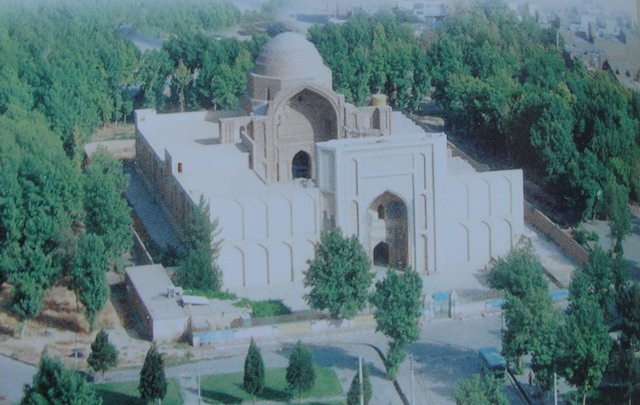 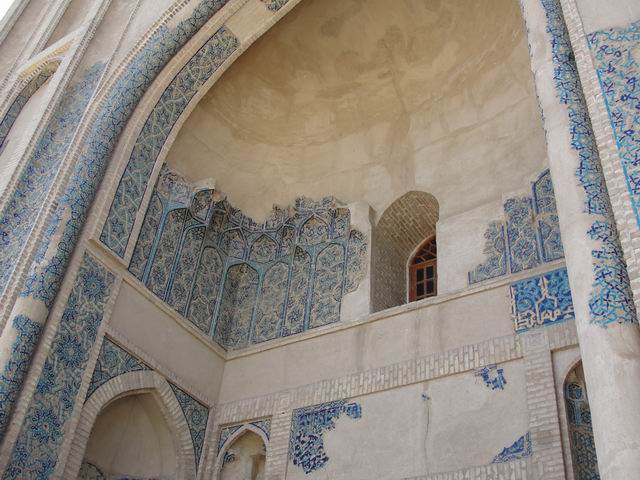 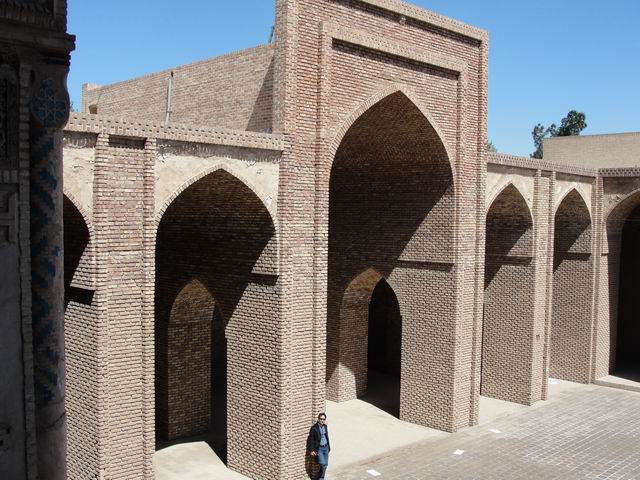 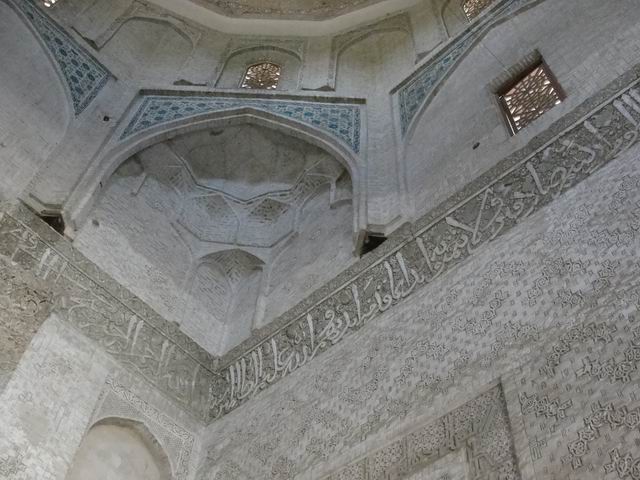 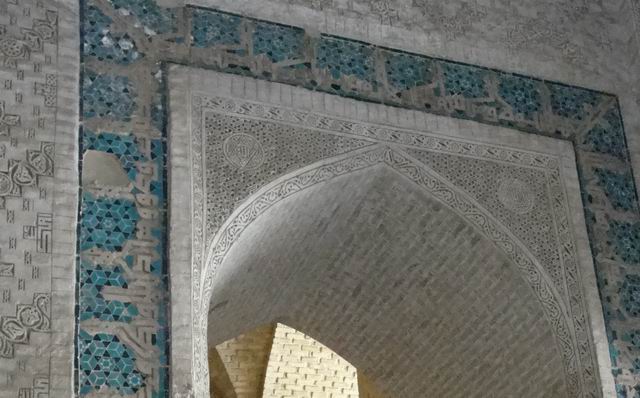 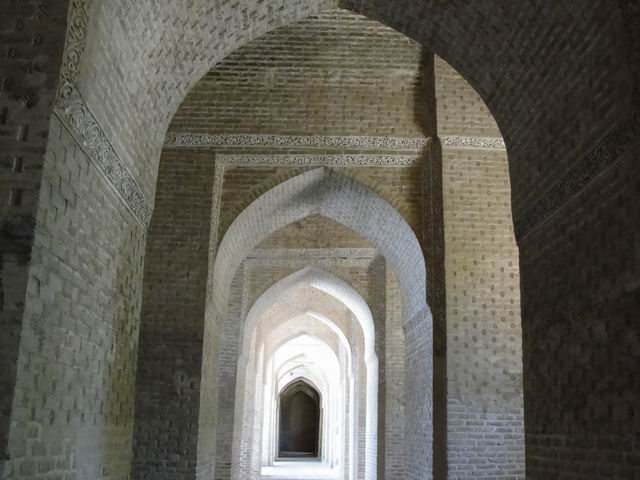 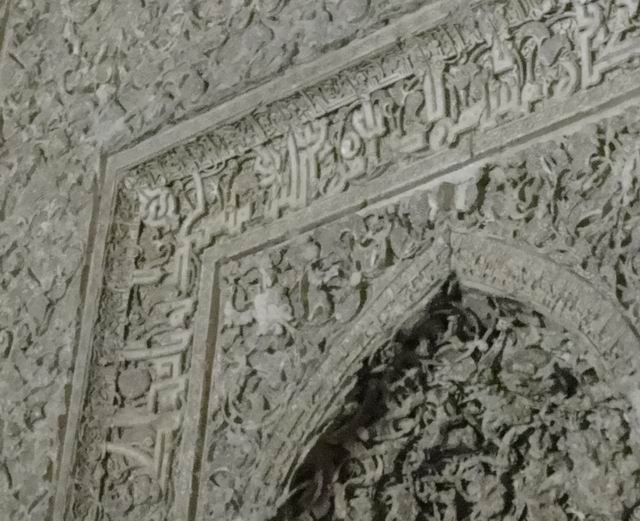 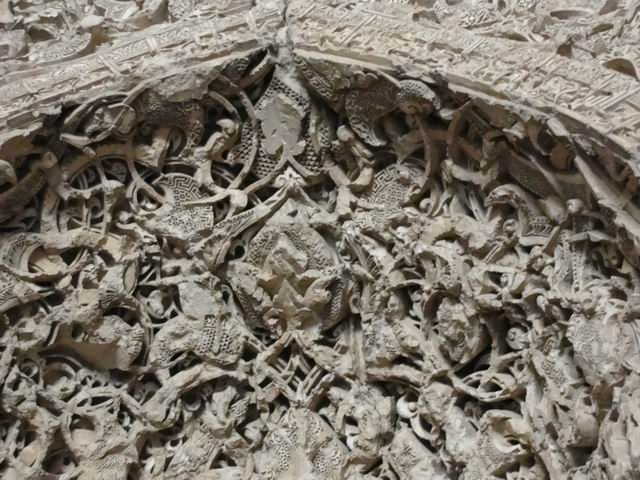 ------------- 
|
Posted By: Cyrus Shahmiri
Date Posted: 01-Apr-2010 at 13:15
Then I visited a beautiful Imamzadeh (Imamzadeh Jafar) with excellent mirror work before going to the wonderful Iraj fortress:
 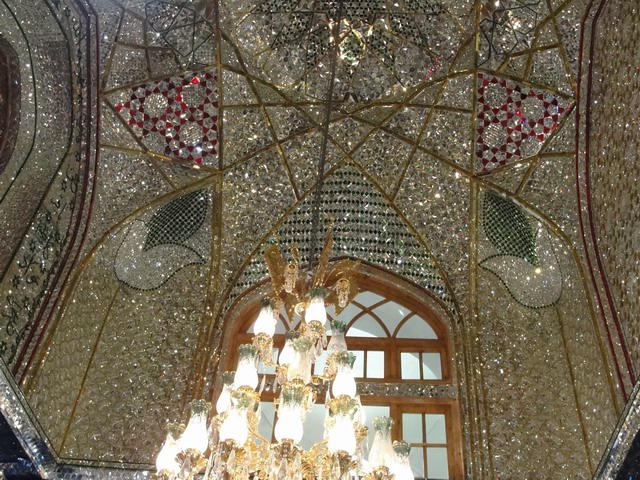 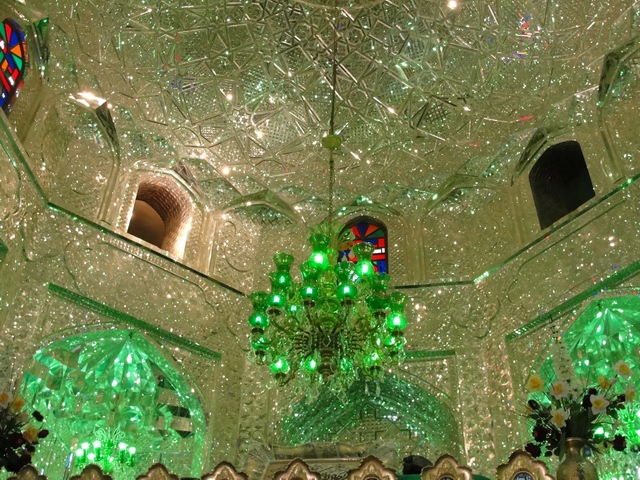 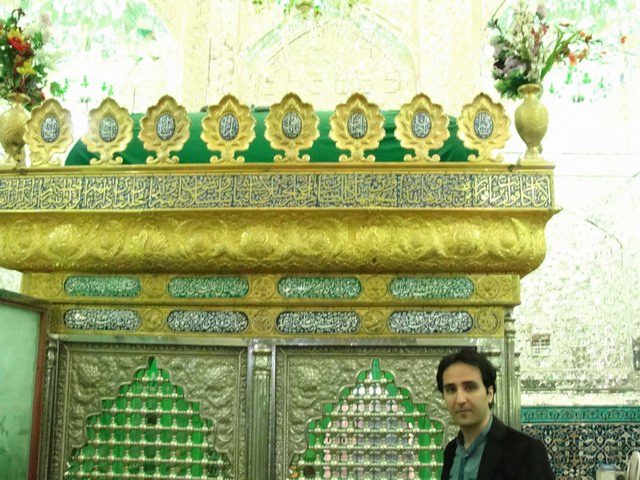 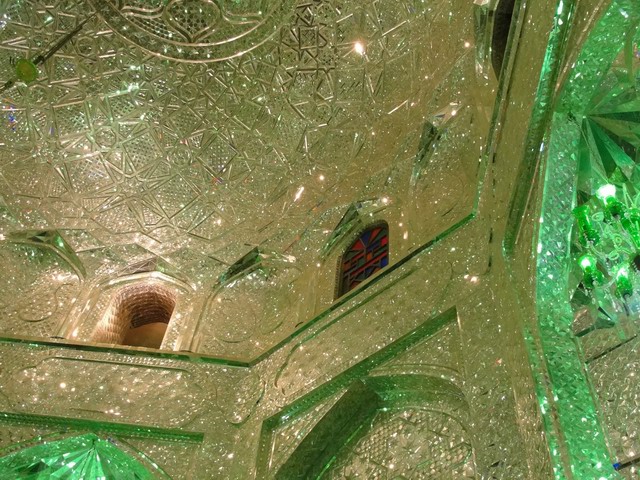 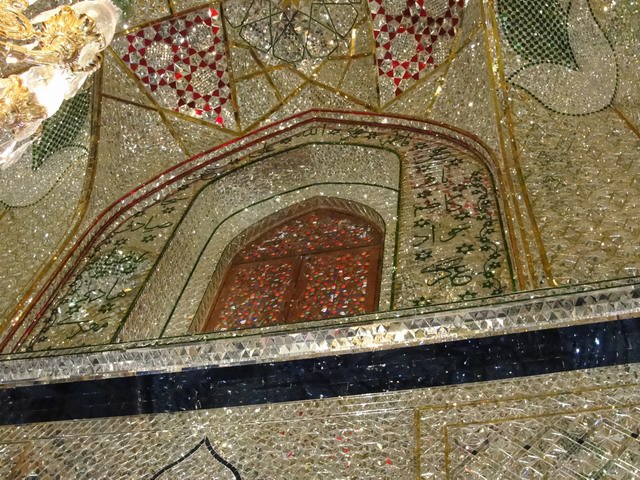 ------------- 
|
Posted By: TheGreatSimba
Date Posted: 01-Apr-2010 at 16:29
| Thanks for the pictures Cyrus! |
Posted By: Cyrus Shahmiri
Date Posted: 02-Apr-2010 at 12:02
|
You are welcome! But about the very ancient Iraj fortress, have you ever seen a 22 meters (72 feet) thick wall?!! It is good to mention the great wall of china measures about 4 to 5 meters thick.
If you search for "great wall of china" in Google map then you will find it: And if you search for Varamin (35° 19' 31 N, 51° 38' 44 E) then you will find it at the same map scale: We read in Avesta, one of the oldest texts in the world: http://www.avesta.org/vendidad/vd1sbe.htm - http://www.avesta.org/vendidad/vd1sbe.htm 17. The fourteenth of the good lands and countries which I, Ahura Mazda, created, was the four-cornered Varena, for which was born Thraetaona, who smote Azi Dahaka [Zohak]. It is believed that Iraj fortress was built by Iraj, son of Thraetaona (Fereydun), the forefather of the Iranians.
The length of each side of this rectangle fortress is about 2 km, if want again to compare it with another thing in China, then we see the Forbidden City which is said to be the largest enclosed palace in the world and consists of 980 surviving buildings with 8707 bays of rooms, covers an area of 168 acres, about the size of 140 football fields but Iraj fortress covers more than 1,000 acres!
Lets see some pics of this ancient fortress which already looks like a mountain range:
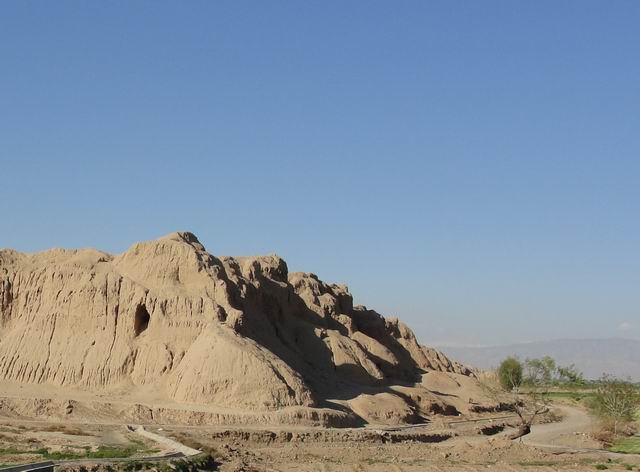 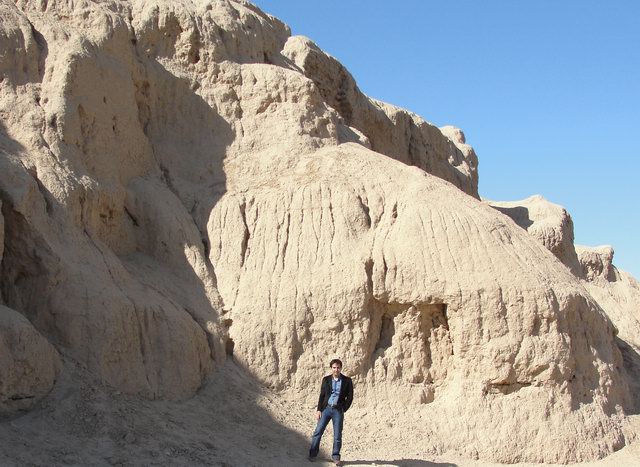 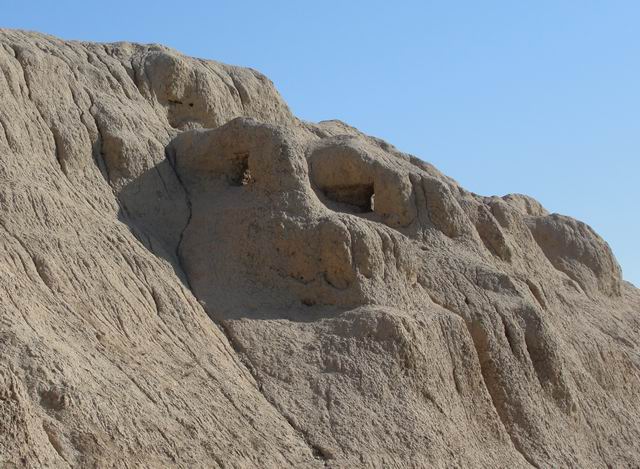 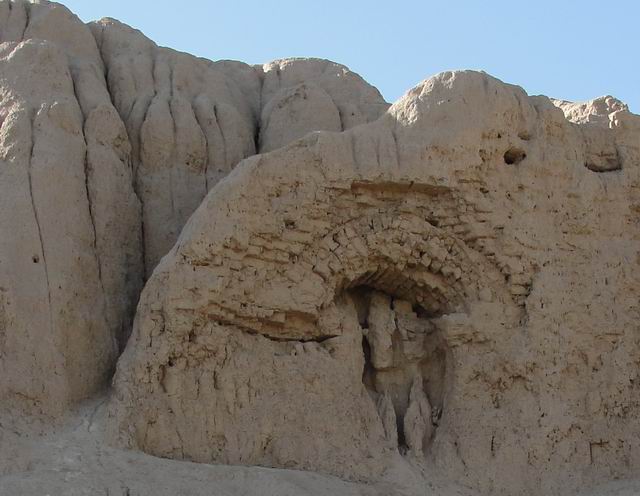 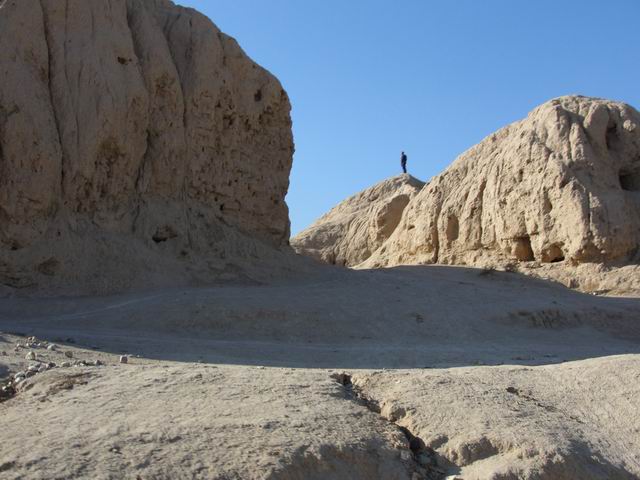 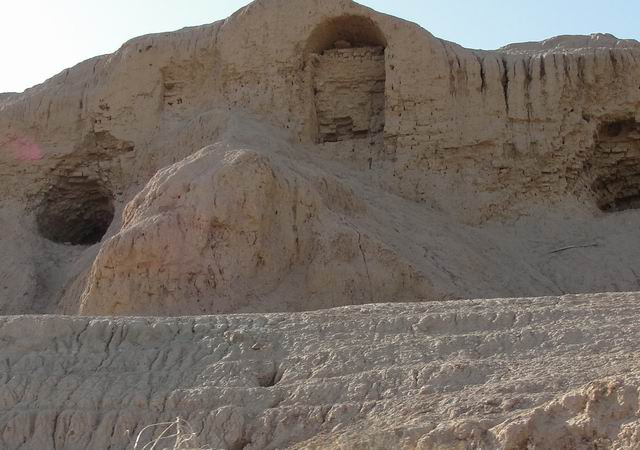 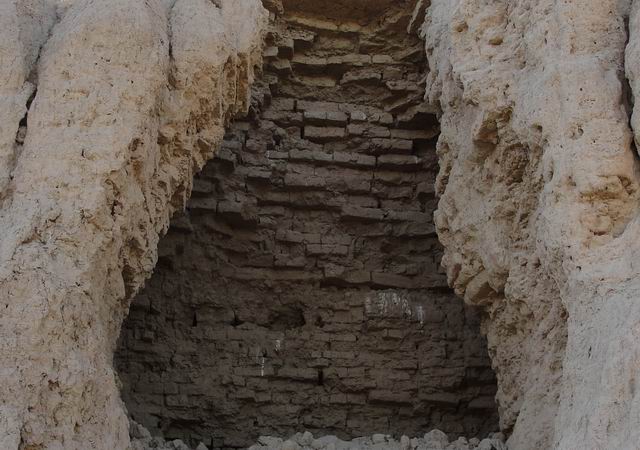  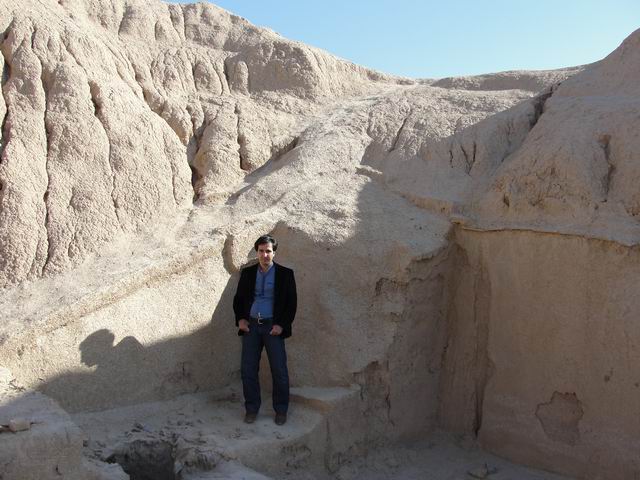 ------------- 
|
Posted By: opuslola
Date Posted: 02-Apr-2010 at 14:26
|
Cyrus, as always I am enthralled by the variety, splendor and immensity of the sights to be seen in Iran!
We must have "Peace!" May God protect us all! Certainly I cannot count upon any man (or any group of men) to do so! Regards, ------------- http://www.quotationspage.com/subjects/history/ |
Posted By: Cyrus Shahmiri
Date Posted: 02-Apr-2010 at 23:23
|
Thanks opuslola, you are certainly right about the variety of historical sites in Iran, as Iraq (Mesopotamia) is called the cradle of civilization, Iran can be called as "crossroad of civilizations", you can find historical monuments from at least 50 different countries in Iran. ------------- 
|
Posted By: opuslola
Date Posted: 03-Apr-2010 at 17:17
|
BAck on track, so to say, I would ask anyone on this list to make any kind of explanation for any fortifications built of "mud-brick, I suppose?) to have been constructed? Its vastly thick walls, increase the possibility that they were built to substain artilery fire, that is "gun fire!" It would "give" but not fall!, or even to a great degree not even "fail!"
So, just what would determine the great size of this fortress? Against just what assailant would someone, sometime, go the the lengths to even began to build such a defensive position? And, no one, I presume could call this an offensive position! Cyrus, were any remains found of other buildings within the enclousure? It seems that farmers have ploughed the ground for many years! Is there an enclosed "water supply?" Has anyone ever figured out the number of cubic yards of mud brick, etc., that had to have been transferred from some other place to this place (without it seems creating a gigantic bowl) in any way? Just how many "mud bricks" would it take? Just how many man hours? Just how many people and for what period of time? So, many questions, and I hope many answers? Regards, ------------- http://www.quotationspage.com/subjects/history/ |
Posted By: Cyrus Shahmiri
Date Posted: 04-Apr-2010 at 02:44
|
As always those are some good questions and I'm interested to know the answers too but just about the inside of the fortress, unfortunately it seems almost nothing has been left, as you said farmers have ploughed the ground for many years, of course I could just visit about one tenth of this huge fortress and there could be some places from the ancient times among the farms that I didn't visit. ------------- 
|
Posted By: opuslola
Date Posted: 04-Apr-2010 at 14:00
|
Has there never been any official investigation or archaeological dig? If not, how come?
There is a new deal on certain travel sites, refering to the "New Seven Wonders of the World!" Unless I am quite mistaken, this place which well may be able to be seen from outer space, should be included in this list! Questions, questions, and so few answers! ------------- http://www.quotationspage.com/subjects/history/ |
Posted By: Cyrus Shahmiri
Date Posted: 05-Apr-2010 at 05:51
I reviewed the pics and it seems there are some ancient buildings inside the fortress too, this is a view from the inside:
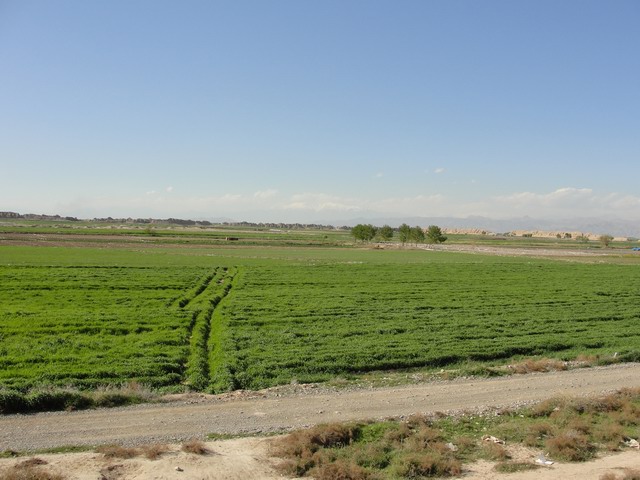 I zoomed in on the pic and found somethings in the top left:
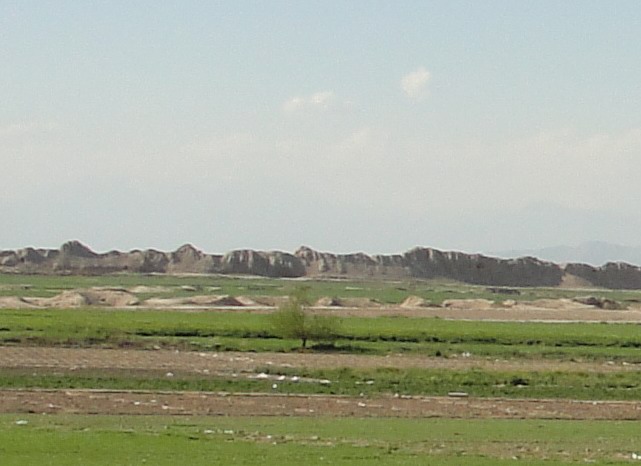 As you read http://www.cais-soas.com/News/2008/October2008/20-10.htm - here , Twelve excavations have been carried out on the body of the monument, but the team could not find any evidence to precisely determine the purpose of the structure.
It says "Archaeologists believe that the Iraj Fortress, the world’s largest adobe fortress located in Varamin, a southern suburb of Tehran, was likely abandoned shortly after construction." and then says about the people who built this huge fortress "they had to cover all towers of the fortress with earth and left it in the hopes of coming back again but most likely they didn’t return to the site." and finally says "the ruins of the fortress have been surrounded by some 7000-year-old tepes". ------------- 
|
Posted By: opuslola
Date Posted: 05-Apr-2010 at 06:45
|
Just the job of "covering all towers of the fortress with earth" would have been a mighty endeavor!!
To get enough earth to make the bricks, and then to cover the exposed bricks with earth, may also explain the leveling of numeorous "tepes" in the surrounding area! Still, my only word to describe what you have shown to us is "Amazing!" ------------- http://www.quotationspage.com/subjects/history/ |
Posted By: Cyrus Shahmiri
Date Posted: 05-Apr-2010 at 11:05
But Iraj fortress is still samller than the very precise circular citadel city of Gur, the first capital of Sassanid empire, near modern city of Firuzabad:
More info: http://www.cais-soas.com/News/2009/March2009/05-03-plan.htm - http://www.cais-soas.com/News/2009/M...05-03-plan.htm
The plan of the city was a perfect circle of 1,950 m diameter, divided into twenty sectors by a precise geometric system of twenty radial and several concentric streets. It was surrounded by a main wall of stamped clay, a ditch 35 m wide, and a fore-wall. Inside the town an inner wall set off the circular city centre, which was probably the site for official buildings. 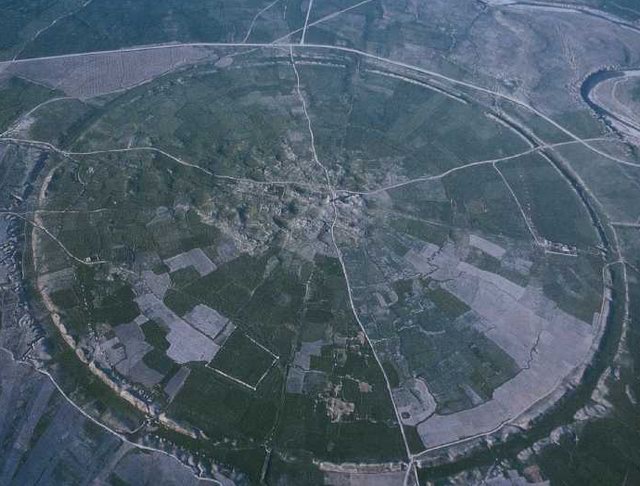 The tower-like terbāl stands at the very centre of the city. This terbāl is a pier of rough stone masonry 9m square and more than 30m high. It was the core of a stair-tower; with a 20m width of the destroyed stairs and outer walls. It was thought to have had a winding external stairway and to have been a descendant of the ziggurat.
 ------------- 
|
Posted By: Cyrus Shahmiri
Date Posted: 06-Apr-2010 at 06:53
As you see this round city is very similar to the round city of Darabgerd, look at this thread: http://www.allempires.com/forum/forum_posts.asp?TID=27568 - Mysteries of Darabgerd (Round City of Darius)
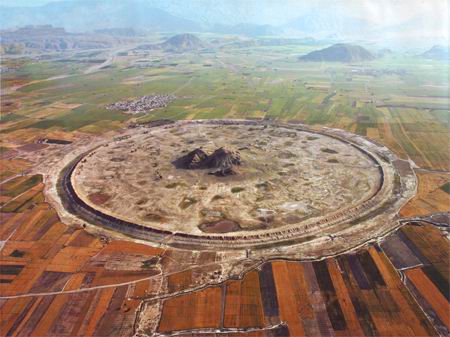 I think these huge round and rectangle buildings couldn't be built by human being, I looked at the Google Map and found that just some kms in the south of Varamin in the Kavir desert where absolutely no one lives, there are a large number of round and rectangle shapes, some of them are even larger than some modern countries.
I think I'm the first one who discovers it!
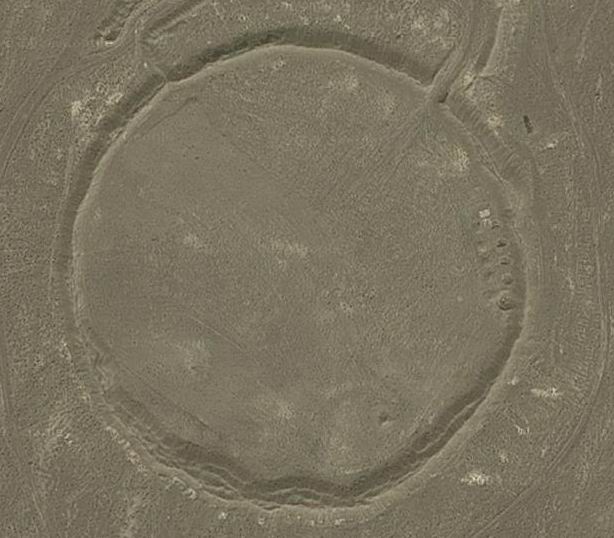 There is something like an arrow above it:
 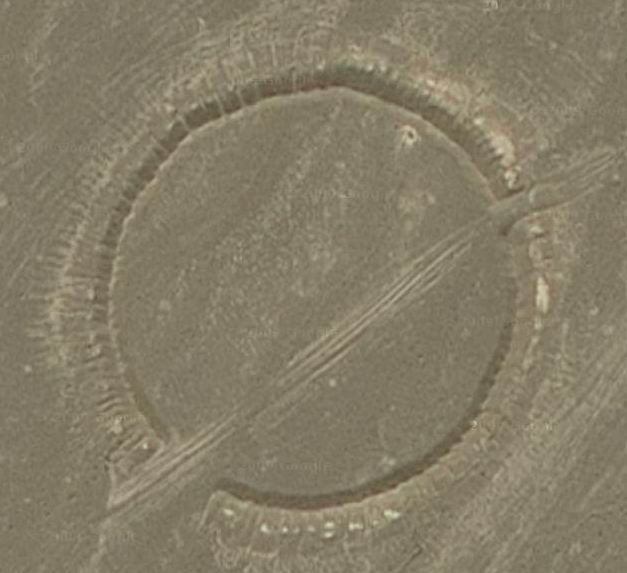 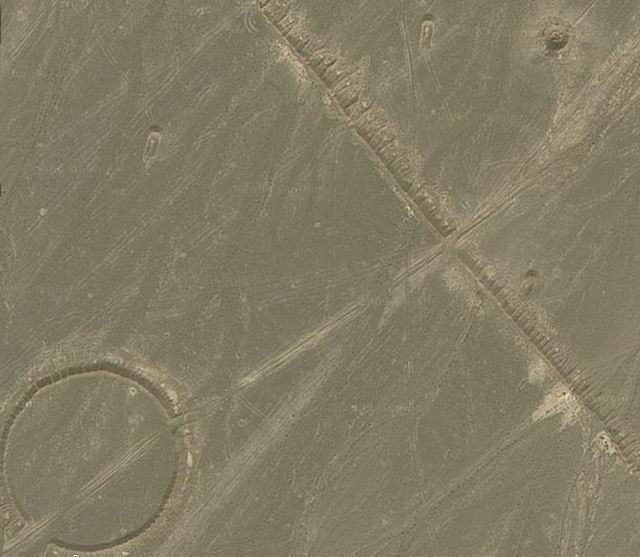 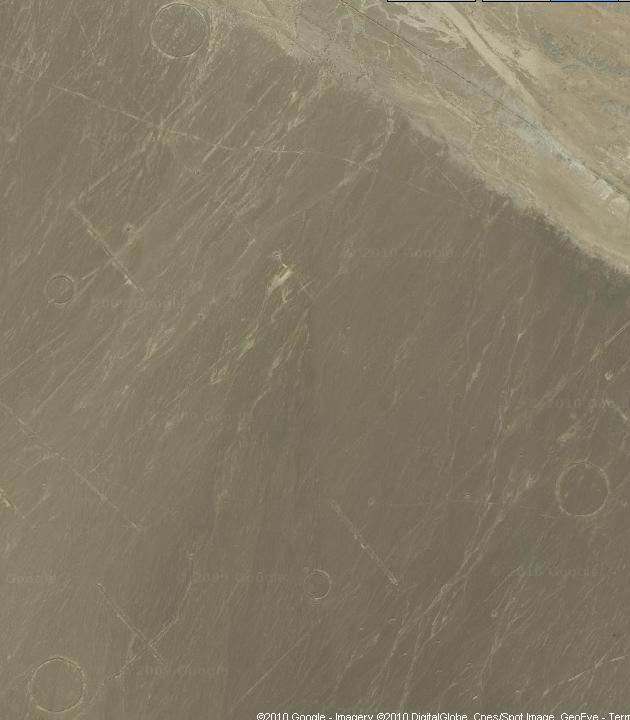 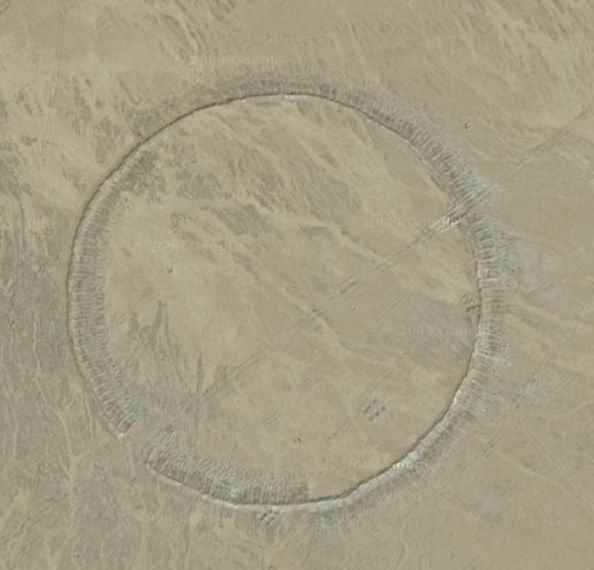 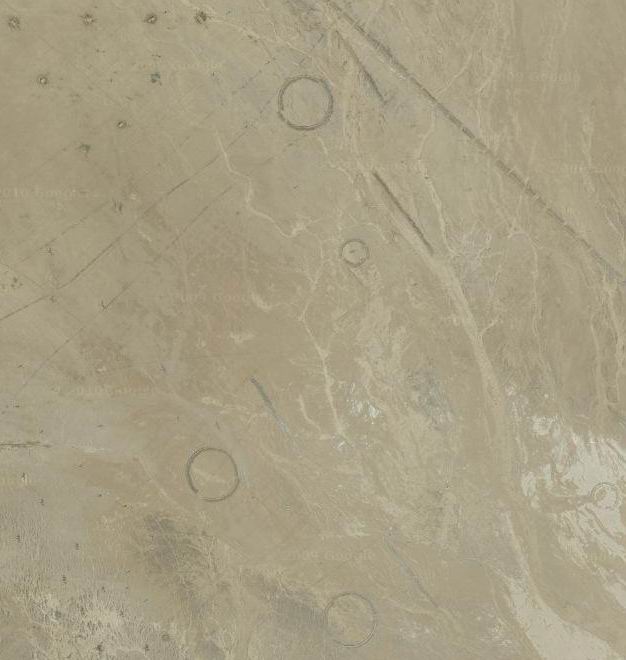 This rectangle one is several times larger than Iraj fortress:
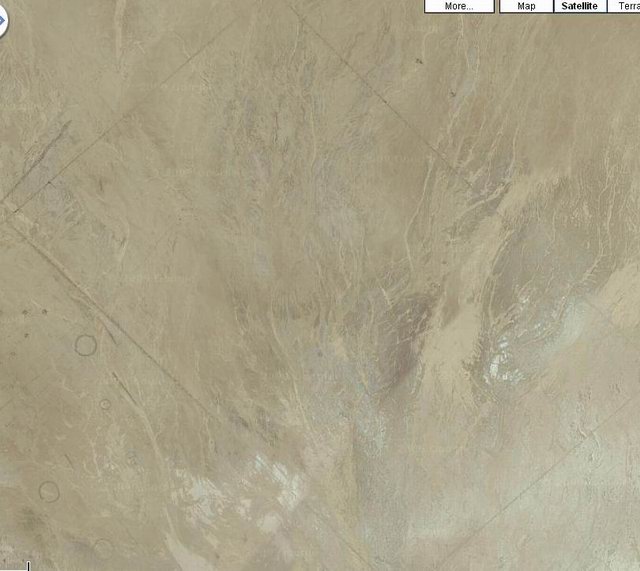 ------------- 
|
Posted By: opuslola
Date Posted: 06-Apr-2010 at 07:57
|
"Great Scott" Cyrus! Just what else are you going to find in those barren wastelands? Since I am not into aliens performing acts like this, nor do your examples really resemble something like the Nazca Lines; http://en.wikipedia.org/wiki/Nazca_Lines Since they involved very little in the way of earth manipulations being only a few feet or inches in height and width!
Could these retangles and circles, which seem to be pushed up into large mounds many feet in height and diameter, by what seems to be bull-dozers, really be the result of old military practice areas? Or was there someone with a bull dozier or three, with lots of time and money who spent all of their time just playing? It seems you have uncovered a mystery that needs to be solved? Where is H. Poirot when we need him? Laugh! http://en.wikipedia.org/wiki/Hercule_Poirot Could you find a good geologist in your area and show him the photos? Or maybe a military historian? Or both? ------------- http://www.quotationspage.com/subjects/history/ |
Posted By: Cyrus Shahmiri
Date Posted: 06-Apr-2010 at 08:44
|
Iraj fortress was really the most wonderful building that I have ever seen, I read in a Persian website that the head of Iran's Cultural Heritage and Tourism Organization has said 10,000 people should work for 100 years to reconstruct this building, so who were the people who abandoned Iraj fortress shortly after construction?! Where could be safer than this strong fortress for them? There are some other buildings which is said to be built in the shape of a rectangle, for example the Sassanid Saryazd Citadel in Yazd: http://www.allempires.com/Forum/forum_posts.asp?TID=24967 - http://www.allempires.com/Forum/forum_posts.asp?TID=24967
 But this is not better than this:
 I think it is very difficult to build exactly a large rectangle building, maybe if I didn't see those images from Google Map then I couldn't imagine that this fortress is an accurate rectangle. ------------- 
|
Posted By: Cyrus Shahmiri
Date Posted: 06-Apr-2010 at 09:10
|
opuslola, I know that at least from 3,000 years ago no one has lived in those regions, those are in the deep desert and I see really no reason that some people want to built somethings there, I just don't know that they can be natural or not, like meteor craters. ------------- 
|
Posted By: pouyakhani
Date Posted: 24-May-2011 at 20:59
|
Hello...I know it's a bit late to reply but... anyway I am from Varamin myself... unfortunately most of People of Varamin doesn't even know that Varamin is an ancient city ..they don't know that Masjed Jame's is a very unique mosque..they don't even know that carpet which is woven in Varamin has a unique pattern and is very expensive.. and when you tell someone not from Varamin "Let's visit some place here:....they just say: "Varamin?Eh..." ...This bad view of the city was made about 100 years ago when a murderer....umm... let's forget it.. and about those round circles... according to local villagers these fortress were used by Zoroastrians during Arab invasion (and as you know these castles are called Qale' Gabri ... Gabr is an archaic word for Zoroastrian) ... |
Posted By: johnbriner
Date Posted: 01-Jun-2011 at 22:48
|
Cyrus, thanks for sharing those wonderful photos. Looking at them makes me feel as though I've traveled back in time. The ancient structures are simply stunning and they are well preserved. I can see that Iran has a lot to offer to travelers. I think I should visit there. ------------- http://johnbriner.wordpress.com - John Briner Art |
Posted By: red clay
Date Posted: 02-Jun-2011 at 09:59
|
Cyrus, I don't think the circles are natural. Certainly the rectangles aren't. The circles either don't have a "throwout rim" that a metorite would have or are so old as to have had it eroded by wind and time. However, they have a kind of similarity to "Henges" as viewed from the air.
------------- "Arguing with someone who hates you or your ideas, is like playing chess with a pigeon. No matter what move you make, your opponent will walk all over the board and scramble the pieces". Unknown. |
Posted By: Cool2212
Date Posted: 03-Jun-2011 at 20:13
|
wow thats incredible. ------------- |
Posted By: opuslola
Date Posted: 04-Jun-2011 at 17:55
|
Well red, of course they are not extraterrestial! But thanks for confirming it!
What they are, at least the ones that actually describe a citidel of sorts, are man made. The question is "when" and then "Why?" The other large circles in the waste land, seem to be more modern and possibly of some military value? Regards ------------- http://www.quotationspage.com/subjects/history/ |
Posted By: keetper
Date Posted: 04-Nov-2011 at 03:52
| Nice photos you've brought with you. An amazing place, i believe, would visit it too if i got a chance |
Posted By: opuslola
Date Posted: 08-Jan-2014 at 13:30
|
I don't know if any of you ever go back and review old posts, but I do. And the photos seen here are breathtaking.
Perhaps one of you can explain them? Ron ------------- http://www.quotationspage.com/subjects/history/ |
Posted By: yomud
Date Posted: 28-Jan-2014 at 14:43
persian mirror work are best in the world ! those pic are really breathtaking  ------------- yomud are free people |

